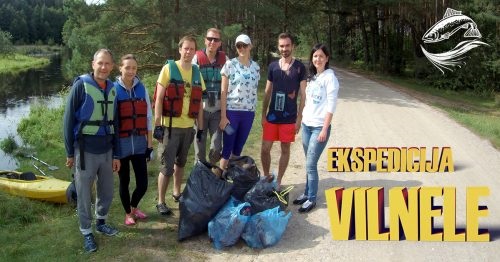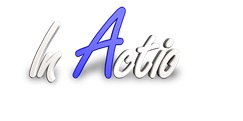The Reduction of the Pollution of the Baltic Sea and the Protection of Migrating Salmon in Lithuania

Situation and background
Baltic salmon usually inhabit marine waters and return to spawn in native freshwater streams. During migration these fish often swim hundreds of kilometres, thereby encountering a variety of different environments during their lives.
In Lithuania, illegal fishing activities greatly increase during the annual salmon migration period. Intensive poaching constitutes the main threat to salmon populations of this region. Lithuanian salmon is considered a profitable catch and is often sold on the black market. However, illegal fishing is also considered a local tradition, further contributing to the problem. Residents, particularly those living in villages near rivers, cause a great deal of damage to the existent salmon population by using illegal fishing nets and poaching at prohibited times.
Untreated wastewater, one of the major factors contributing to the pollution of the Baltic Sea, also has negative effects on the salmon population. The major sources of this pollution include the surplus of synthetic or chemical fertilizers and untreated domestic sewage water, both of which enter the Baltic Sea via rivers. Unfortunately, the release of untreated wastewater from households and farms directly into rivers and streams is common practice in Lithuania.
The project commenced with the circulation of awareness-raising material on social media platforms. A video demonstrating the beauty of the Baltic Sea’s coastline and the Lithuanian landscape was produced, along with informative material on critical issues affecting this region, including pollution and its effects on human beings and fish species.
Furthermore, volunteers and environmental activists working for “In Actio” have begun tackling the problem of salmon poaching and the reduction of pollution in Lithuanian rivers. “In Actio” is also closely cooperating with Lithuanian environmental inspectors, who help organise precautionary raids against infringers.
Project activities and effects
Project Goal:
- identification of illegal wastewater pollution sources that flow into the country’s rivers and small streams and are directly connected to the Baltic Sea
- protection of salmon populations through insuring suitable measures are put in place for migrating salmon to reach their upriver spawning habitats
Objectives:
- To identify sources of illegal wastewater pollution and disseminate the results to competent management authorities in Lithuania, thereby helping to reduce pollution levels in the Baltic Sea
- To educate local residents about the possibilities of installing ecologically sustainable alternative methods and low-tech equipment for proper treatment of household wastewater
- To collect and exchange illegal fishing nets used by poachers with new fishing rods, thereby reducing the opportunities for poaching in the salmon migration and spawning season
- To reduce and prevent illegal salmon fishing in inland waters by organising preventive environmental raids in co-operation with local environmental authorities
- To raise environmental awareness in students and local communities by organising lectures and seminars on the negative impacts of poaching activities and the importance of conservation measures
Activities:
- “Expeditions to identify illegal sewage” (Results gathered through this study will be disseminated to competent management authorities in Lithuania, Local communities will further be educated on the possibilities of installing ecologically sustainable alternative methods and low-tech equipment for the proper treatment of household wastewater)
- „Destroy your illegal net” (collecting illegal fishing nets owned by the local population, thus reducing the opportunities for poaching in the salmon migration and spawning season)
- “Save Salmon” (Environmental preventive raids and check-ups will be organised in co-operation with local environmental institutions, this will help reduce the poaching activities of salmon during their migration and spawning season)
- „Poaching – a damage to environment” (raise environmental awareness in students and local communities by organising lectures and seminars on the negative impacts of illegal poaching)
Beneficiary
Kultūros centras “In Actio”
Partners
- Regional Environment Protection Department
- Lithuanian University of Educational Sciences
- Fishermen
- Various other interest groups and volunteers
Project region
Different parts of Lithuania
Project duration
2017-07-01 – 2018-07-31
Budget
total project budget: € 90,620
funding BaltCF: € 80,126
